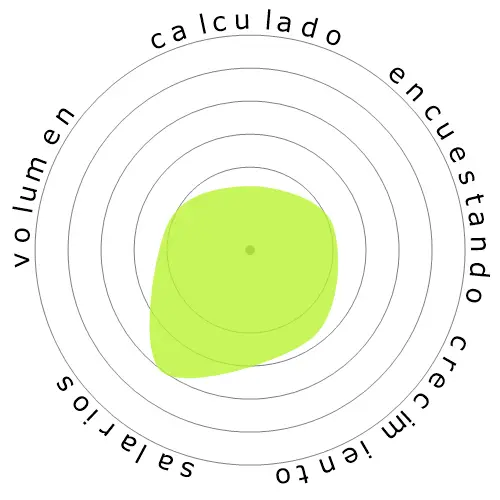Escritores Técnicos




Las personas también vieron
Riesgo de automatización calculado
Riesgo Inminente (81-100%): Las ocupaciones en este nivel tienen una probabilidad extremadamente alta de ser automatizadas en un futuro cercano. Estos trabajos consisten principalmente en tareas repetitivas y predecibles con poca necesidad de juicio humano.
Más información sobre qué es esta puntuación y cómo se calcula está disponible aquí.
Encuesta de usuarios
Nuestros visitantes han votado que no están seguros si esta ocupación será automatizada. Sin embargo, el nivel de riesgo de automatización que hemos generado sugiere una probabilidad mucho mayor de automatización: 94% probabilidad de automatización.
¿Cuál crees que es el riesgo de la automatización?
¿Cuál es la probabilidad de que Escritores Técnicos sea reemplazado por robots o inteligencia artificial en los próximos 20 años?
Sentimiento
El siguiente gráfico se incluye siempre que haya una cantidad sustancial de votos para generar datos significativos. Estas representaciones visuales muestran los resultados de las encuestas de usuarios a lo largo del tiempo, proporcionando una indicación importante de las tendencias de sentimiento.
Sentimiento a lo largo del tiempo (anualmente)
Crecimiento
Se espera que el número de ofertas de trabajo para 'Technical Writers' aumente 4,0% para 2033
Empleo total y estimaciones de vacantes laborales
Las proyecciones actualizadas se deben 09-2025.
Salarios
En 2023, el salario anual mediano para 'Technical Writers' fue de 80.050 $, o 38 $ por hora.
'Technical Writers' recibieron un salario 66,6% más alto que el salario medio nacional, que se situó en 48.060 $
Salarios a lo largo del tiempo
Volumen
A partir de 2023, había 47.970 personas empleadas como 'Technical Writers' dentro de los Estados Unidos.
Esto representa alrededor del < 0,001% de la fuerza laboral empleada en todo el país.
Dicho de otra manera, alrededor de 1 de cada 3 mil personas están empleadas como 'Technical Writers'.
Descripción del trabajo
Escribir materiales técnicos, como manuales de equipos, apéndices, o instrucciones de operación y mantenimiento. Puede asistir en trabajos de diseño.
SOC Code: 27-3042.00


Comentarios
Leave a comment
The main challenge for an AI is not the technical writing. It is actually making sense of the source material. This will be the main job of technical writers: Explaining to the AI what it needs to write. Technical writers will increasingly be busy with post-editing AI written texts, which will be a very mind numbing task. It will also require fewer people and warrant lower pay.
If you want to know the future of technical writing, look at what has happened to technical translation. If you are a technical writer, you are headed the same way. You will operate AI tools and check the results for lousy pay because you are not actually doing the brain work. Get into nursing or open a funeral home. People will always get sick and die, that's a future-proof occupation.
Curating and organizing the information to feed to the AI, and checking their output for accuracy, may be one of the few jobs left to tech writers.
As technical writers we understand complex systems (as well as the engineer's gibberish that often comes with it) and are able to translate this into a form that is easily understood by the respective user groups, i.e. operators or maintenance personnel.
In my opinion AI nowadays can provide draft text to the technical writers. But it takes a human to process that into understandable content, because only a human can know what is necessary for others to profit from precise instructions and related warnings. Also when it comes to jurisdiction.
Who will be held accountable for injury or death caused by automated AI that simply pretends to be human-like but has otherwise no conscience? I mean, an AI can tell you that a stove is hot, but does this mean it really knows the consequences of touching it?
Some learned it the hard way, I doubt an AI can.
I don’t see this role being completely automated in 10 years.
More importantly, why would anyone pay for a professional to do it?
We are already implementing automated structured reuse on a large scale. People should not underestimate the potential of computational linguistics when combined with machine learning and a knowledge graph-rich future.
Although intelligent content (structured content with human-declared intent) cannot be automated yet, we are already auto-classifying content with additional semantic metadata (taxonomies). AI/ML will continue to assist and eventually replace a significant portion of low-level content development, which will elevate the writer's role to that of an information architect/designer.
Object-oriented content will then become a service called Content-as-a-Service (CaaS), much like an electrical distribution grid.
In TechComm and MarComm, we have been evolving towards this model for many years.
I cannot fathom how AI would somehow be able to do all the things that are required to be done in order to complete a technical writing piece.
AI has already taken over the writing niche . . . people no longer need education to write, software helps them do it. That is all AI could ever do for a writer.
Deja una respuesta sobre esta ocupación